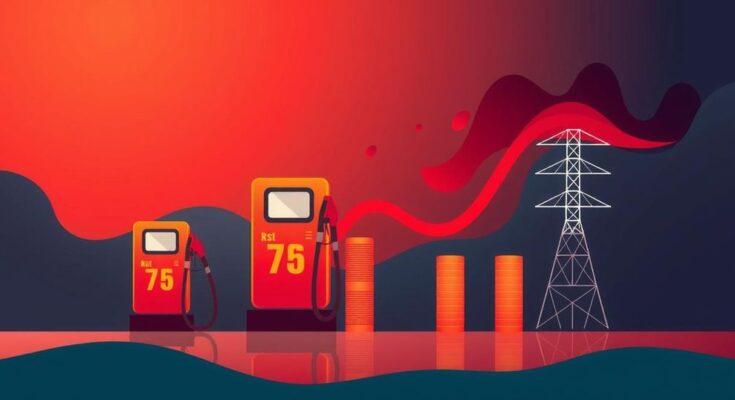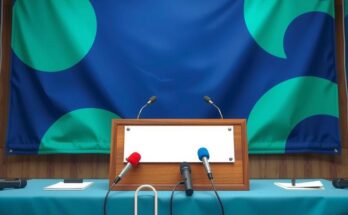Former Presidential Staffer Dennis Miracles Aboagye has highlighted critical economic challenges confronting Ghana under President John Mahama, including rising fuel prices and galamsey activities. Concerns about worker dismissals and educational support have been raised. Meanwhile, GUTA has expressed hopes that the upcoming budget will avoid imposing further tax burdens on traders, and focus on economic stabilization.
In recent months, Mr. Dennis Miracles Aboagye, a former Presidential Staffer under the Akufo-Addo administration, has observed various economic challenges facing Ghana since President John Mahama’s resurgence. Issues such as rising fuel prices, increasing instances of erratic power supply, and a surge in illegal small-scale mining, commonly known as galamsey, have heightened concerns, particularly as the 2025 budget presentation approaches.
In a Facebook post, Aboagye expressed his apprehension regarding the exacerbation of dumsor and illegal mining activities, implicating the return of prominent NDC figures in facilitating these challenges. He also highlighted the regrettable sacking of many workers without justification, alongside soaring prices of goods and services that have affected Ghanaians universally.
Furthermore, Aboagye lamented the disillusionment felt by first-year university students who had to pay for their own fees despite government assurances. He criticized certain civil society organizations, deeming them biased and partially responsible for misleading the populace. Aboagye underscored the pressing need for citizens to hold the government accountable, ensuring it adheres to its obligations.
In a related note, Dr. Joseph Obeng, President of the Ghana Union of Traders Association (GUTA), communicated expectations regarding the upcoming 2025 budget. He conveyed that traders do not anticipate new taxes and expressed approval for strategies aimed at expanding the tax net to include additional contributors. He emphasized that augmenting taxation on existing contributors is a concern, while welcoming methods to involve non-payers in the taxation system.
The Ghanaian government has approved the 2025 fiscal policy document ahead of its legislative presentation scheduled for March 11. This decision reflects the administration’s dedication to economic stabilization and sustainable growth. Government Communications Minister Felix Kwakye Ofosu reassured the public of the government’s commitment to its social and economic objectives, stating that the budget will highlight both the current fiscal scenario and proposed measures for advancement. Additionally, the budget aims to address the financial legacy bequeathed by the previous NDC government.
In summary, Ghana is currently facing significant economic issues, including rising fuel prices, erratic power supply, and escalated illegal mining activities under President Mahama’s administration. Concerns have been raised about job losses and disillusionment among students regarding educational financial support. Simultaneously, the GUTA has indicated that new tax burdens should not be imposed on traders. The government’s upcoming budget is expected to address these challenges and promote economic growth while reflecting commitments made to the populace.
Original Source: 3news.com




